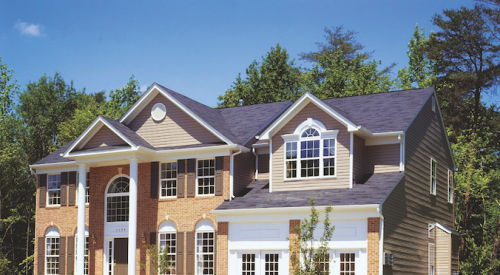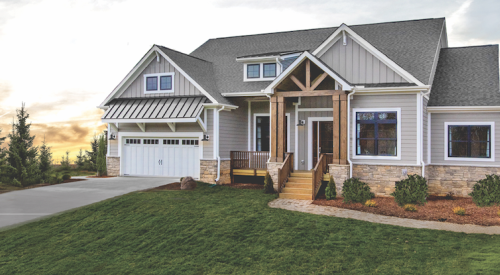 |
Read the Special Report this month on page 54 and the likely result will be a rewrite to the 2005 business plan already on file in your office. Like every company selected as Professional Builder's Builder of the Year, Bigelow Homes in Aurora, Ill., shows home builders a better way to prosper in this ever-changing industry.
Consider this quote from company president Jamie Bigelow as you review your 2005 business strategy:
"We've achieved differentiation. That was our strategy. We really have no competitors. I doubt the public builders will ever do what we do."
According to many in the industry, Bigelow Homes should be on the endangered builder list rather than highlighted as Builder of the Year. The firm ranks number 362 on PB's 2004 GIANTS list with volume of $38.12 million from 212 homes closed in 2003. They should hold their ranking in 2005, with expected revenues this year of $40 million on 215 homes closed.
Industry PR suggests that a single-market, family-run home builder the size of Bigelow should:
- have trouble competing with the nationals for land;
- be unable to get the best trades to work its projects or attract top talent to the organization;
- pay higher rates for the trades they do have on the job;
- pay capital costs so unfavorable as to drive product pricing above that of bigger competitors.
The list could go on, but the day-to-day at Bigelow tells a very different story. For each of the negatives Bigelow management creates a positive:
- A community like HomeTown appeals to both land sellers and the municipalities that eventually entitle the land and approve plans for development. In fact, Bigelow can supply towns with charts and data that show its development model delivers an assessed value per acre 2.25 times higher than that of conventional subdivisions in the area. These stats make Bigelow a preferred buyer for land and a go-to builder for local governments and planning commissions.
- Even-flow production, a paperless purchase order system that actually works and personal relationships with both company founder Perry Bigelow and current president Jamie Bigelow make Bigelow Homes a first choice company for many trades. On average, Bigelow's trades average better than 10 years with the company. Employee longevity is no different because of Bigelow's operating philosophy: staff lean and offer lifelong employment opportunities without the threat of layoffs in lean years. Many current Bigelow employees sought out employment at the company after tenures at national and other local home builders.
- Bigelow's production home building machine runs so smoothly that Perry Bigelow was able to convince the company's trade partners to build houses in the city on a compressed schedule at the same rate they charge Bigelow for suburban work.
- 2003 net profit of 13.8% — industry average is 3.5% to 5% — separates Bigelow from the rest of the builder universe in a more meaningful way to banks than any other financial measure.
Real differentiation — the kind Bigelow planned for and achieved — isn't internal. The value of the plan comes in how it plays in the marketplace. Here too, the company sets a benchmark for builders. Again, Jamie Bigelow best describes the difference between selling a Bigelow home at HomeTown and selling a conventional home: "We're experiential selling. The difference between HomeTown Aurora and a conventional subdivision is like the difference between buying Maxwell House at the supermarket and a trip to Starbucks. Coffee as a commodity compared to the coffeehouse experience. The value added is reflected in pricing and on the bottom line."
What in your 2005 business plan gets your operation to differentiation and the rewards it brings? Do the diligence that the team at Bigelow Homes did. Figure out what your company stands for and how that vision translates into a unique offering the marketplace. Invest the resources to create a compelling value proposition for your staff, your trade partners, your customers. Put the people in place to execute and practice patience as they stumble and learn along the way.
Differentiation drives profitability. This more than anything is the story of Bigelow Homes, the reason Professional Builder picked this company over all others as our 2005 Builder of the Year. Learn from this example how to be the company that only your team can be.
Heather McCune, Editor-in-Chief
630.288.8190












